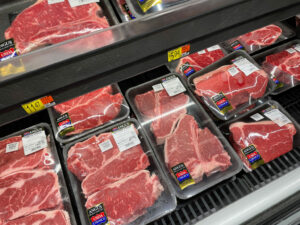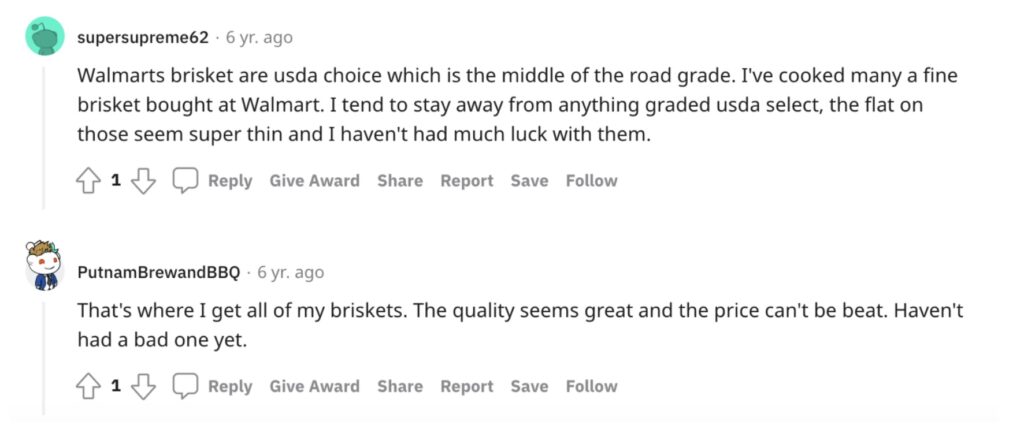As one of the largest retail suppliers of meat in the country, Walmart has a lot of customers wondering where exactly their meat comes from.
In recent years, the retail giant has become a target of increasing scrutiny as consumers grow more discerning about their health and food sourcing. Walmart’s consumer base has requested transparency in Walmart’s meat supply chain, and the company has made several attempts recently to answer that call.

Contents
- 1 Walmart’s Meat Supply In 2023
- 2 Types Of Meat Available At Walmart
- 3 Walmart’s Meat Quality
- 4 Walmart’s Meat Pricing vs. Competitors
- 5 FAQs
Walmart’s Meat Supply In 2023
Walmart’s meat supply practices are changing. While the company relied for many years on third-party suppliers to produce and process their meat, Walmart has recently stepped into the ring as a player in the meat production industry.
First in 2021, Walmart gained publicity after it launched McClaren Farms, an original brand sourcing Angus beef from a Texas rancher named Bob McClaren. However, McClaren Farms beef makes up for just a small percentage of the beef sold in Walmart stores. According to the latest available information, McClaren Farms beef is only available in Alabama, Florida, Georgia, Mississippi, and South Carolina.
Back in 2018, Walmart made a similar move by partnering with a collective of family-owned ranching operations in Utah and Wyoming to produce a line of grass-fed beef for Walmart’s changing consumer base. Beef produced by the Crandall family and sold by Walmart is available widely in Walmart stores across the country and on Walmart.com.
Just one year after partnering with McClaren, Walmart invested in a company called Sustainable Beef LLC, a rancher-owned company based in Nebraska specializing in bringing sustainable, high-quality beef into the supply chain. However, the company is still in the process of building their first meat processing plant, which isn’t expected to open until 2024.
According to a 2020 article from TheCounter.com, the majority of Walmart’s meat still comes from Tyson and Cargill–two of the largest industrial meat producers in the world. But if the plans Walmart is laying now pan out over the next several years, more and more of the meat on their store shelves will come from their privately owned farms throughout the midwest and Rocky Mountain regions.
Part of Walmart’s new shift toward investing in the beef industry at the ground level is motivated by their desire to sell meat that isn’t simply relabeled from another supplier. In 2020, Walmart purchased its first ever meat packing plant, located in Georgia, which is being seen as a move toward selling meat products that have been produced, processed, and packaged specifically for Walmart consumers.






